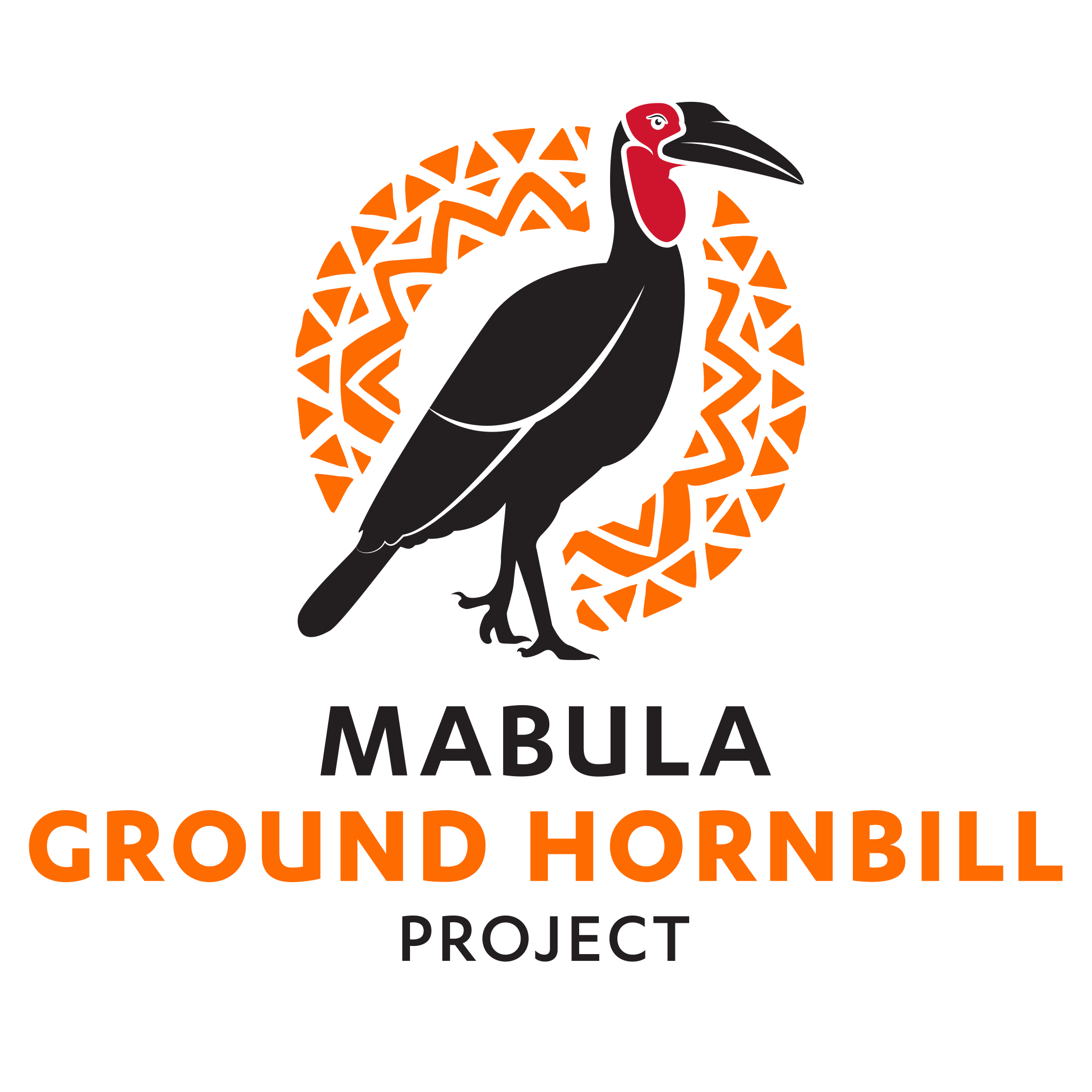THE THUNDER BIRD
MABULA GROUND HORNBILL PROJECT
NEWSLETTER
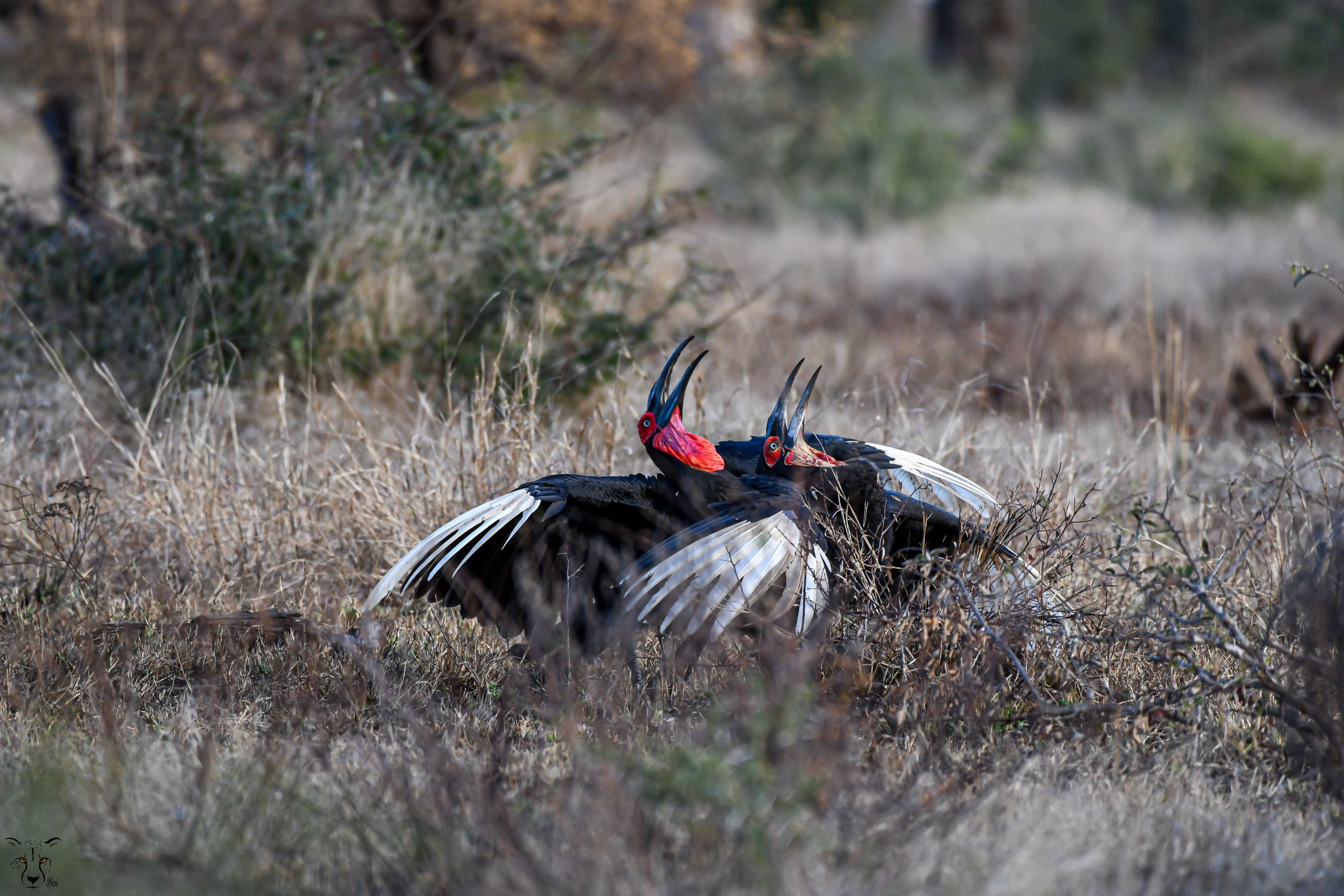
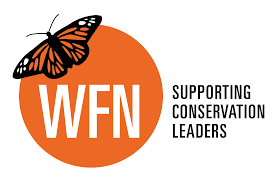
GROUND-HORNBILLS WON!
To hear Sir David Attenborough talk about our work was just the most incredible reward for all the dedicated people who have worked so hard to understand and find ways to keep this species safe. And we would never have made it without you and the video below is a MASSIVE thank you from each and every one of our team for helping us achieve our goals.
And then ground-hornbills won again!!
We were also presented with the BirdLife South Africa Eagle Owl Award for the work done so far. It is a beautiful recognition of hard work and also a beautiful award. Award ceremonies are less fun via Zoom but we are super grateful for all the attention this species is getting. Massive congratulations to all the other award winners too - some amazing stuff happening for the love of birds in this country.
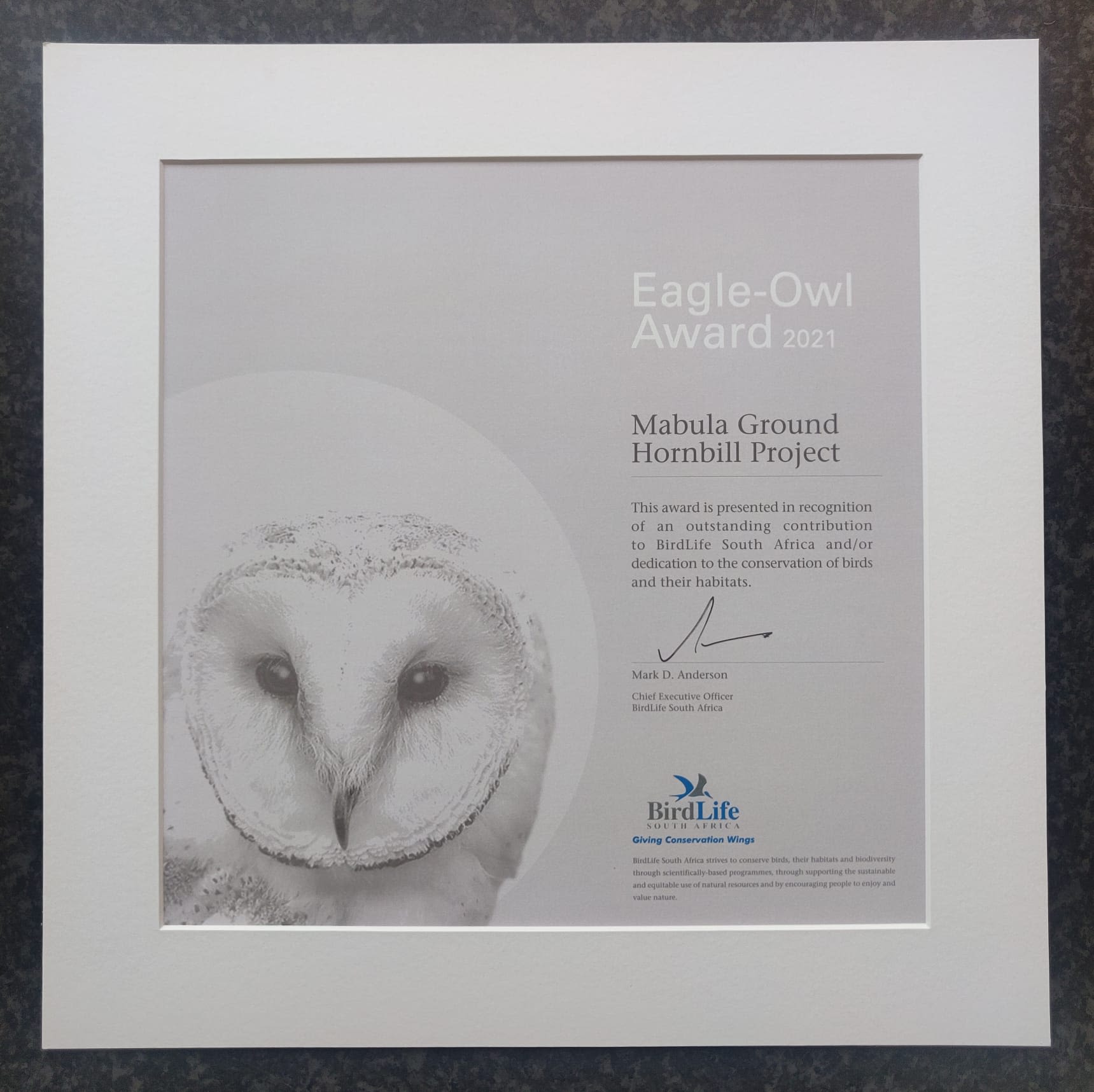
https://www.birdlife.org.za/support-us/events/owl-awards/
another group REINTRODUCED into the wild
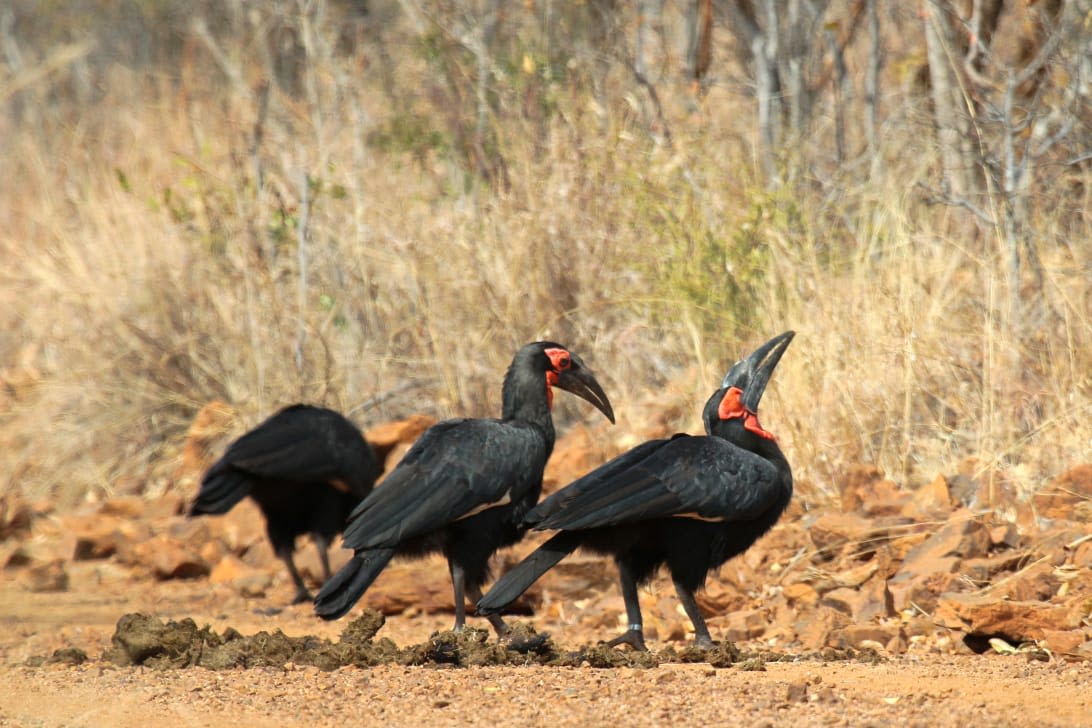
Another trio thriving in the Mabula-Marakele Core
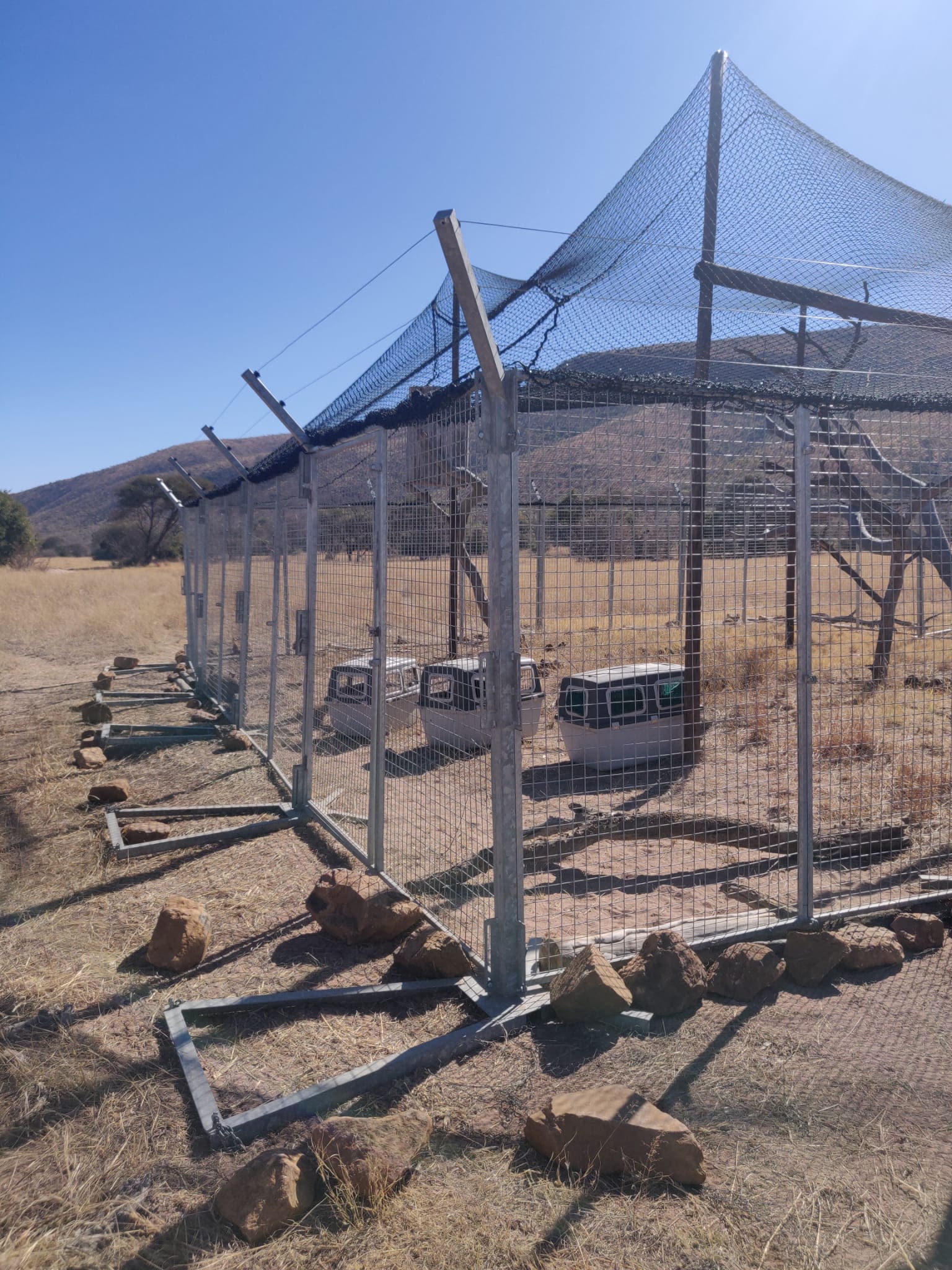
The aviary is up and ready and the birds in their travel crates are just given a few minutes to take in their surroundings and get over the journey before being released into their soft-release aviary.
The aviary is up and ready and the birds in their travel crates are just given a few minutes to take in their surroundings and get over the journey before being released into their soft-release aviary.
We are very happy to report a successful release of a group of three ground-hornbills into a new site. With the assistance of the reserve's ecology team, we got our temporary aviary set up in just a day, and brought in the pair-bonded groups on July 22nd. After a smooth four weeks acclimating to their new home, they were released onto the reserve. Everything went according to plan and the group has stayed close together ever since. As this group is located here in the Waterberg foothills, they are part of our strategic core of Mabula-Marakele breeding groups, with a goal of establishing a minimum of ten breeding groups in total as a viable, self-sustaining population here in Limpopo. The next focal core will be resolving the growing geneflow gap in northern Zululand.
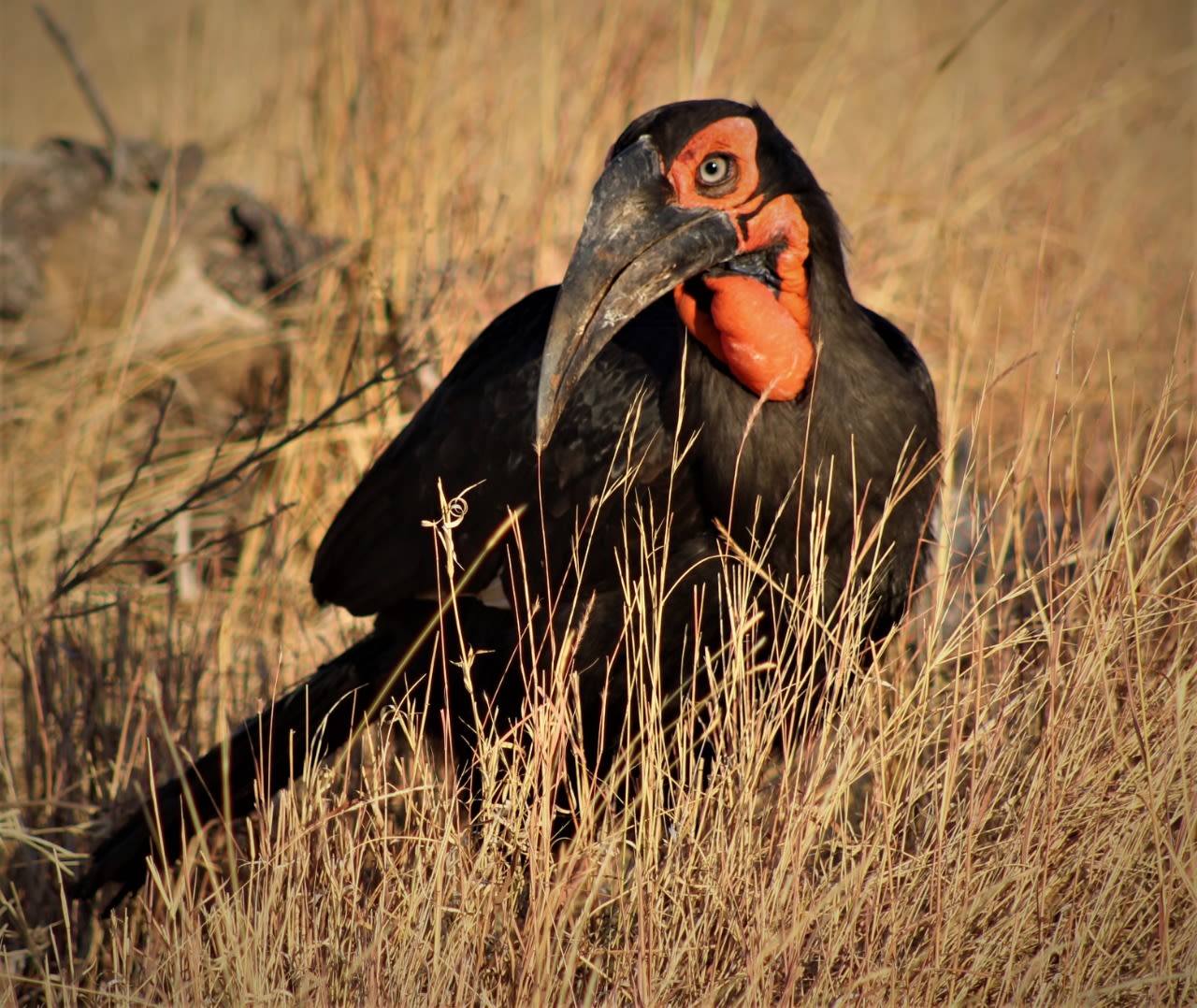
This adult female was once one of the redundant second chicks that we rescued from a wild nest and now she is ready to take on the role of a breeding female in a reintroduced wild group.
This adult female was once one of the redundant second chicks that we rescued from a wild nest and now she is ready to take on the role of a breeding female in a reintroduced wild group.
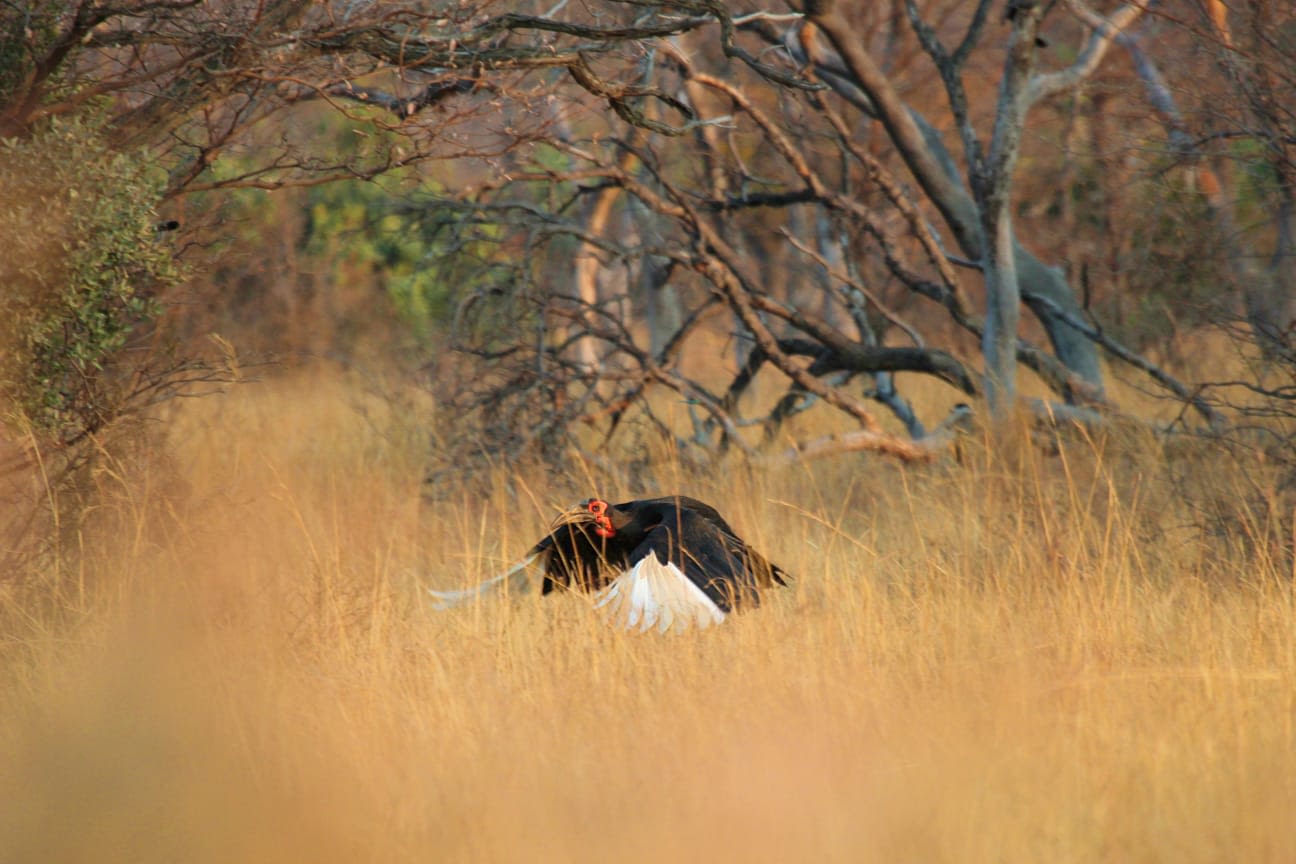
Getting the flight thing right :)
Getting the flight thing right :)
Nest production begins again
GOAL: 20 by the end of September
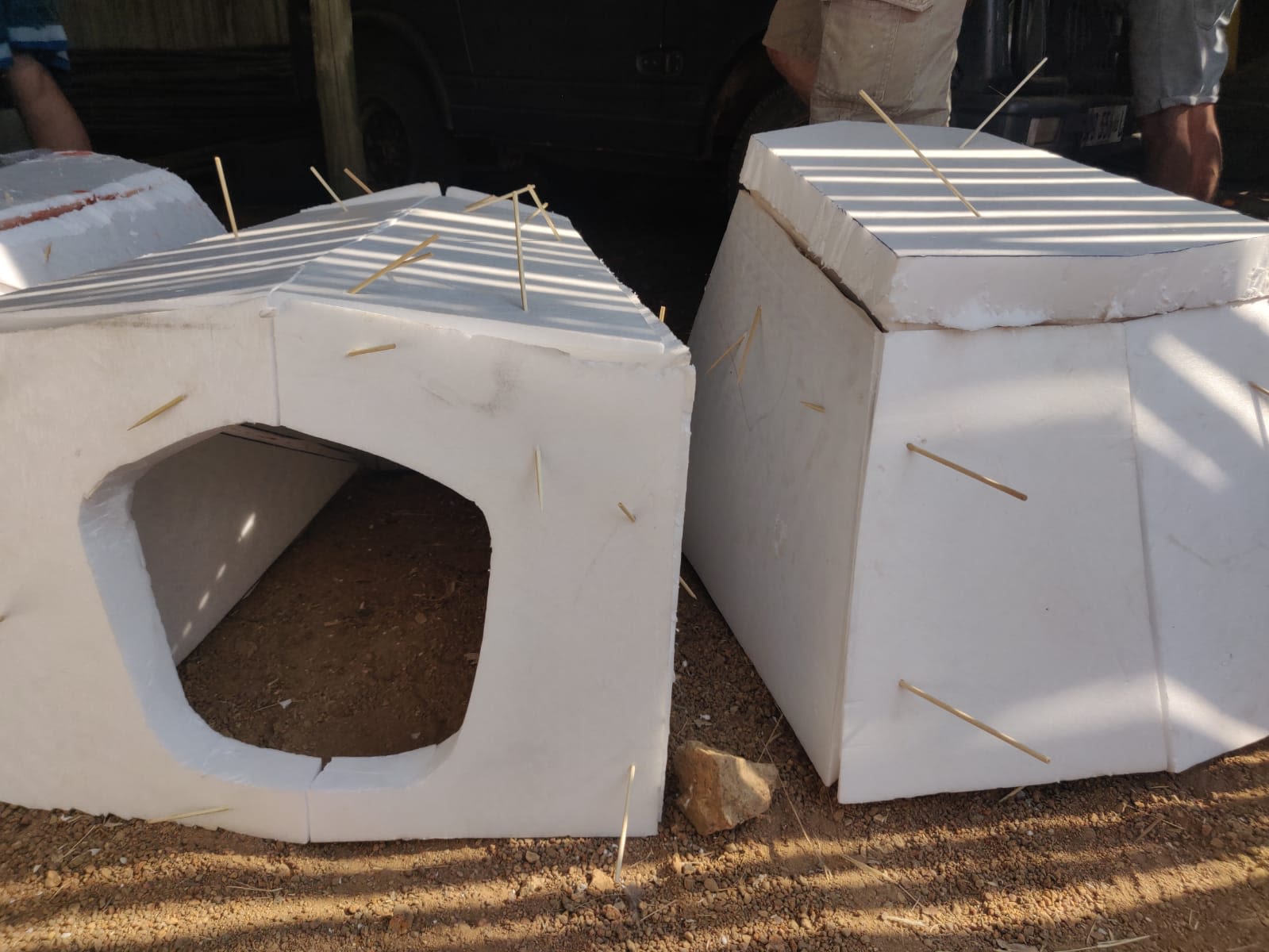
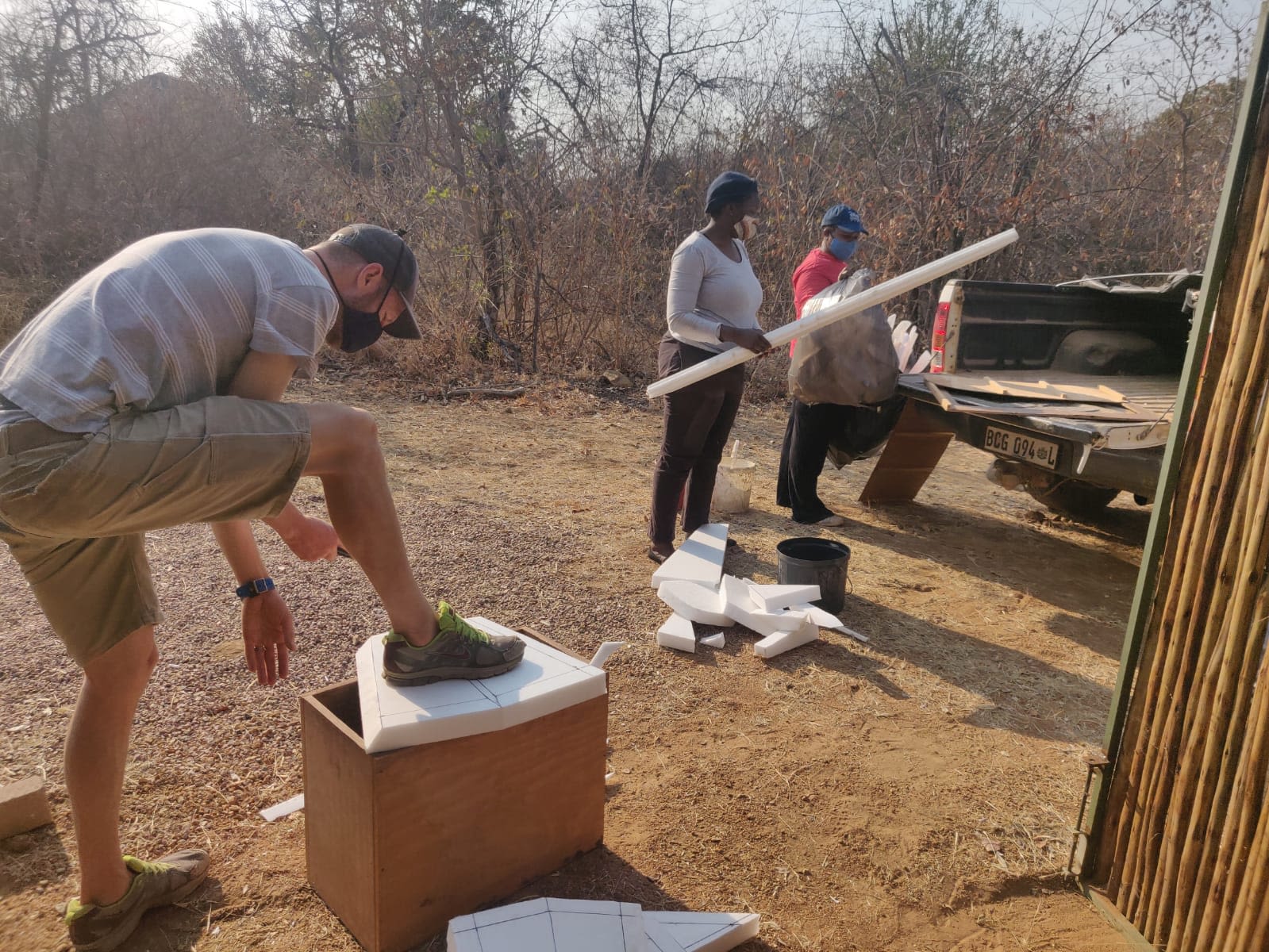
The legendary Kyle Brand on the new super-light version of the nest so that the final nest weighs just 30kg.
The legendary Kyle Brand on the new super-light version of the nest so that the final nest weighs just 30kg.
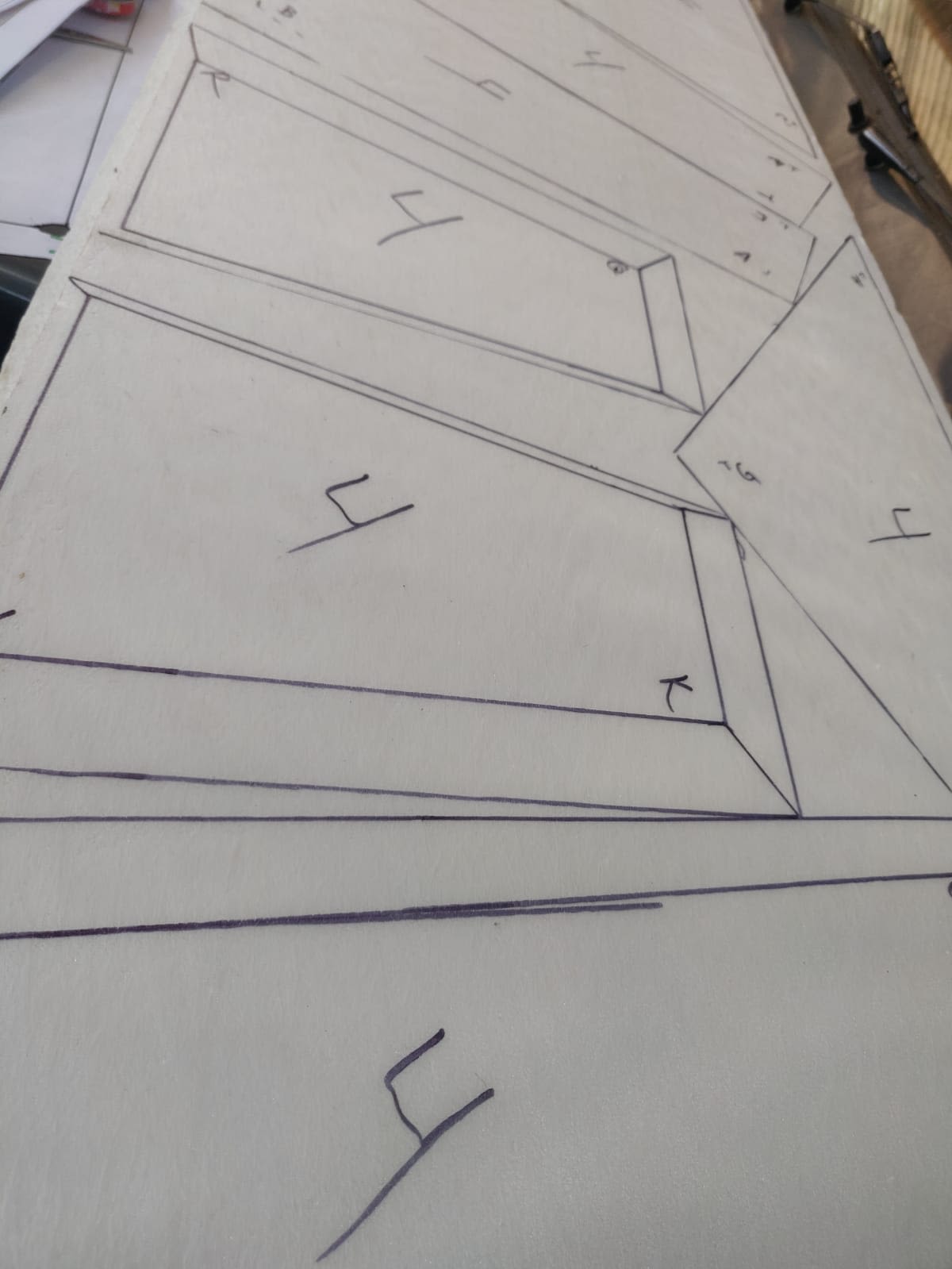
The first batch had to be done the old fashioned way but the new batch is cut by the robotic arm at the Tshwane Univ. of Technology, and so we will be able to work much more effectively (and with way less sweat and tears).
The first batch had to be done the old fashioned way but the new batch is cut by the robotic arm at the Tshwane Univ. of Technology, and so we will be able to work much more effectively (and with way less sweat and tears).
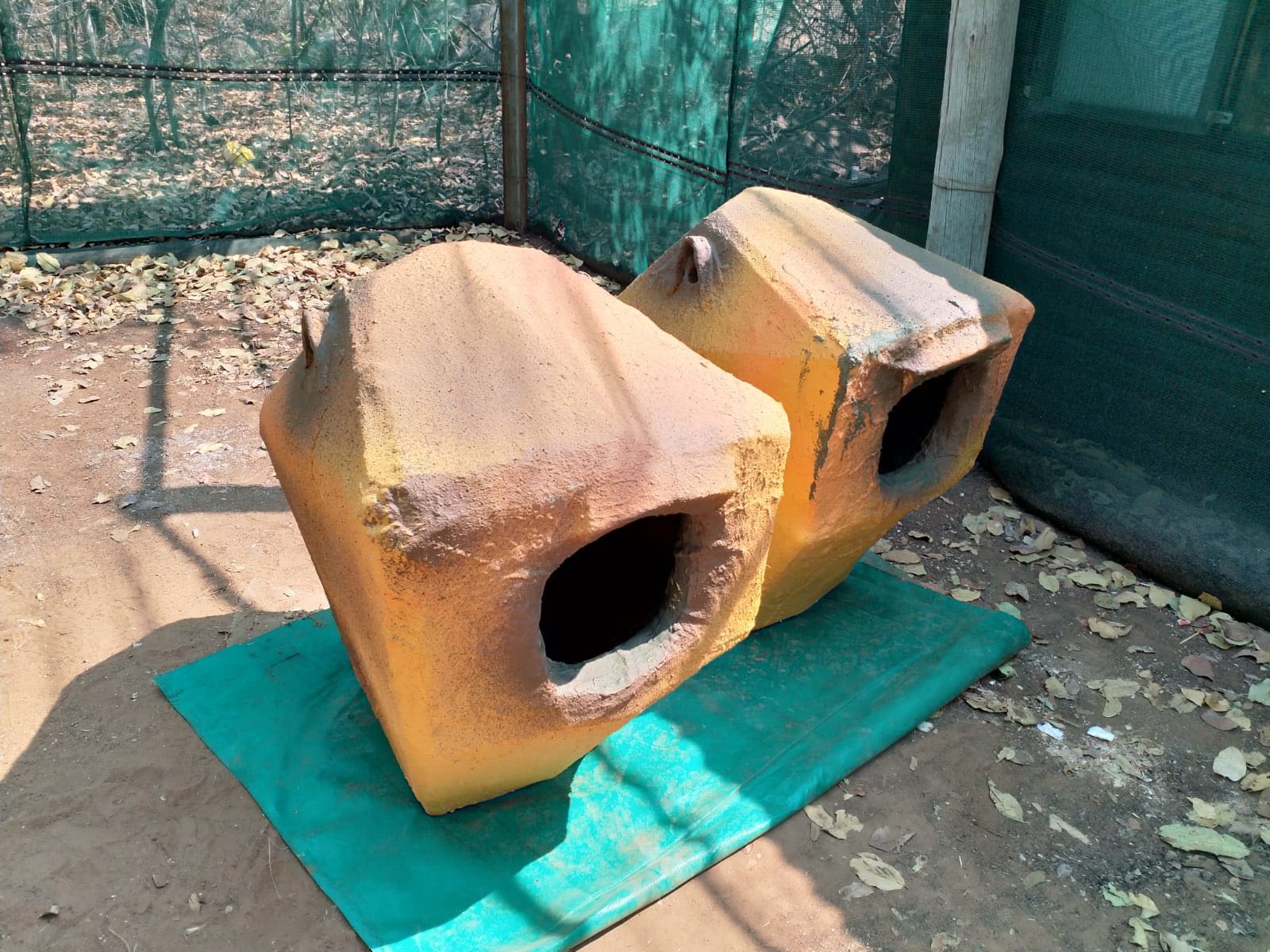
Much tougher and lighter than the previous models - so here is to many safe hatches this coming season.
Much tougher and lighter than the previous models - so here is to many safe hatches this coming season.
Meet our latest Conservation Intern
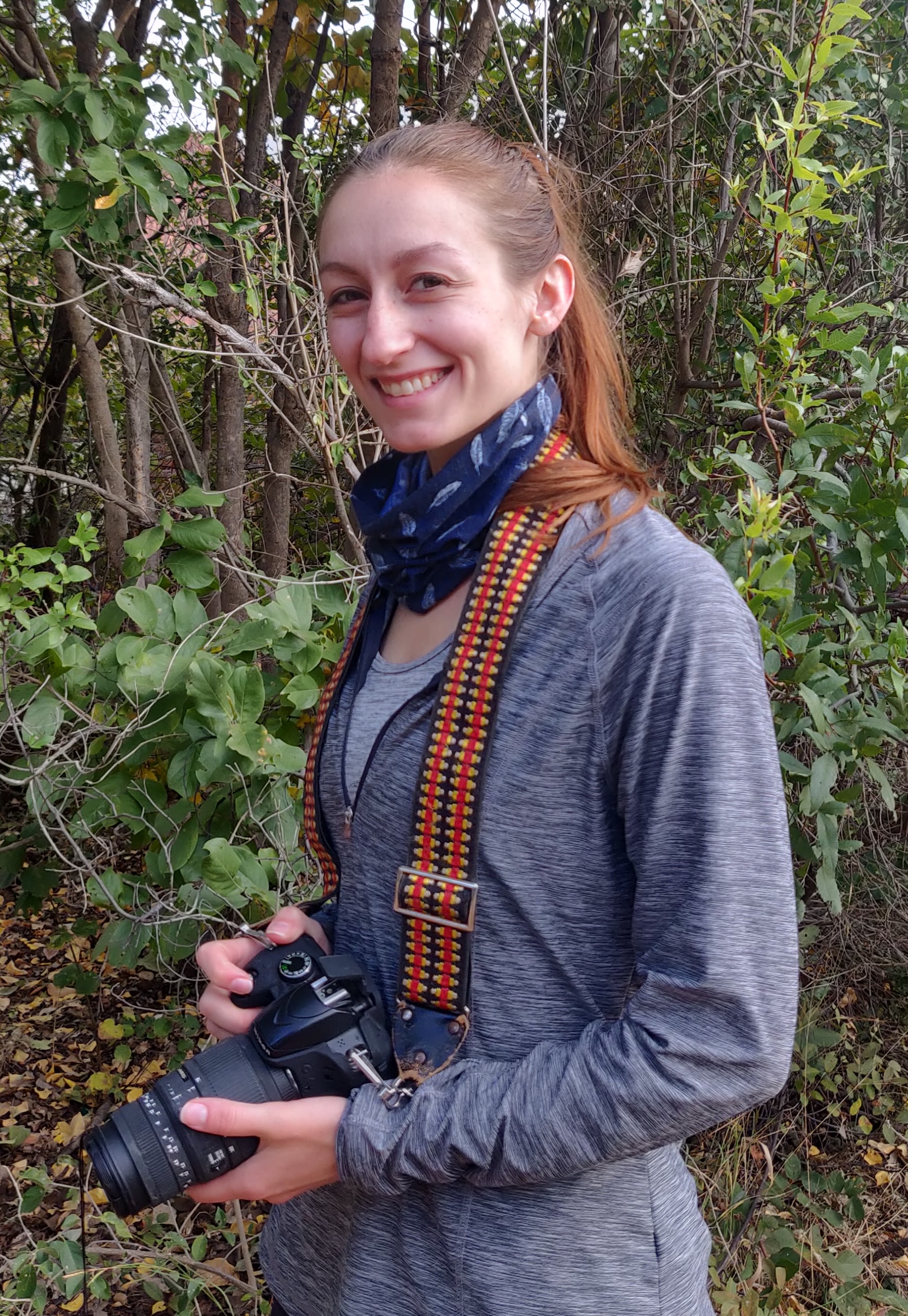
Elizabeth Zadnik
I've been interested in ecology for a long time, and during my studies at Virginia Polytechnic Institute and State University, I started a focus on wildlife management. I was fortunate enough to go on a research trip to Ecuador, where I was able to study local species, the impacts of rainforest loss, and the indigenous peoples' relationship with their government and conservation efforts in the area. It really opened my eyes to the effects of land destruction and ecosystem collapse, and how important it is to construct conservation projects around the practical benefits to the local communities.
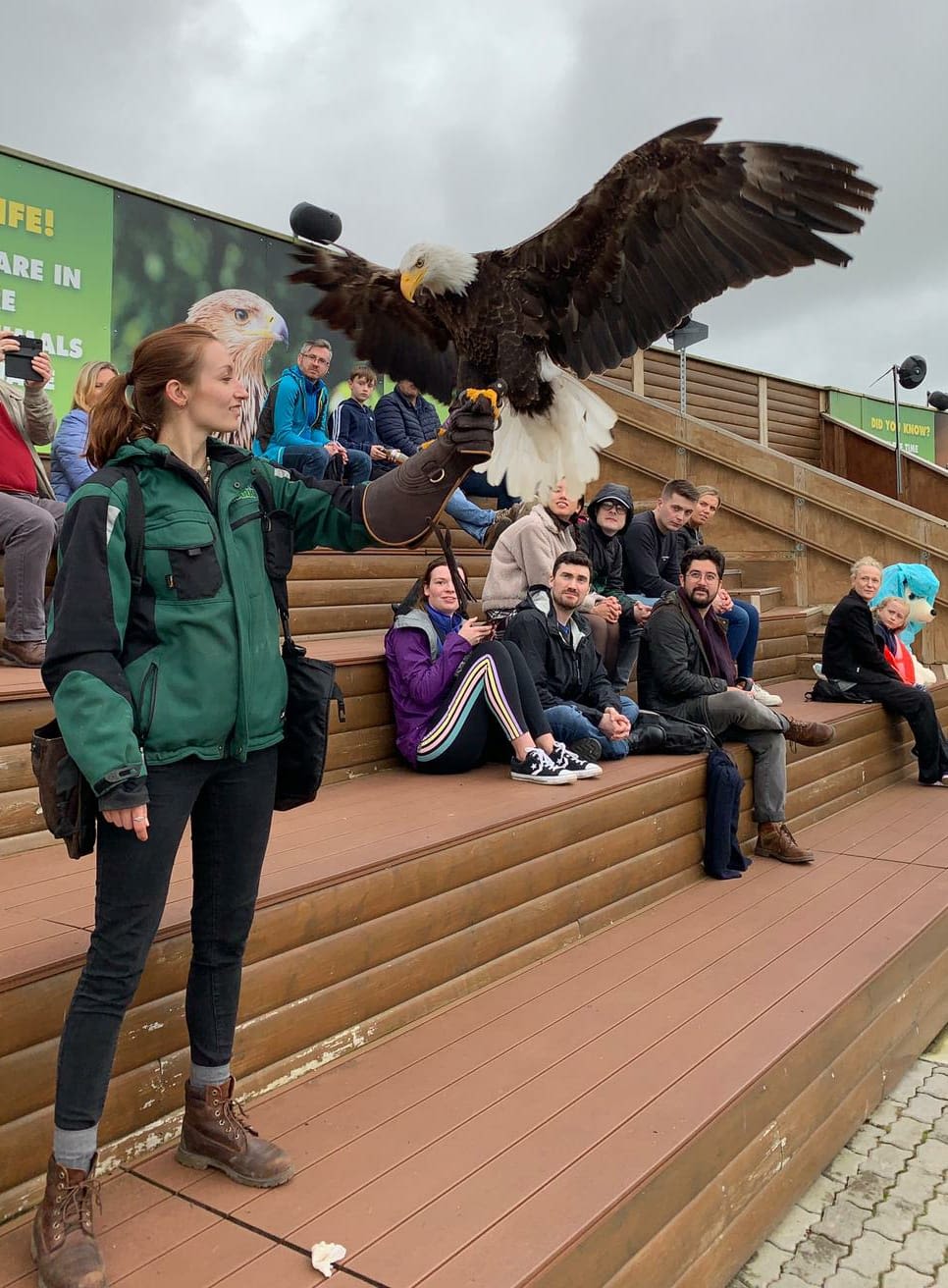
After graduating with a degree in General Biology I spent some time travelling and working in hospitality and customer service, and in 2019 I moved to Ireland to work and volunteer at a raptor centre. After a few months there, I was recommended for a full-time raptor care position in a zoo, where I worked until my visa expiry. In that position, I helped train a young Southern Ground-hornbill, and a fascination with the species led me to further research and contact with the Mabula Project once the pandemic started. The MGHP is an amazing example of species restoration rooted in effective science and community involvement. I'm excited and honoured to learn more about these amazing birds and to contribute to their preservation in the time that I'm here.
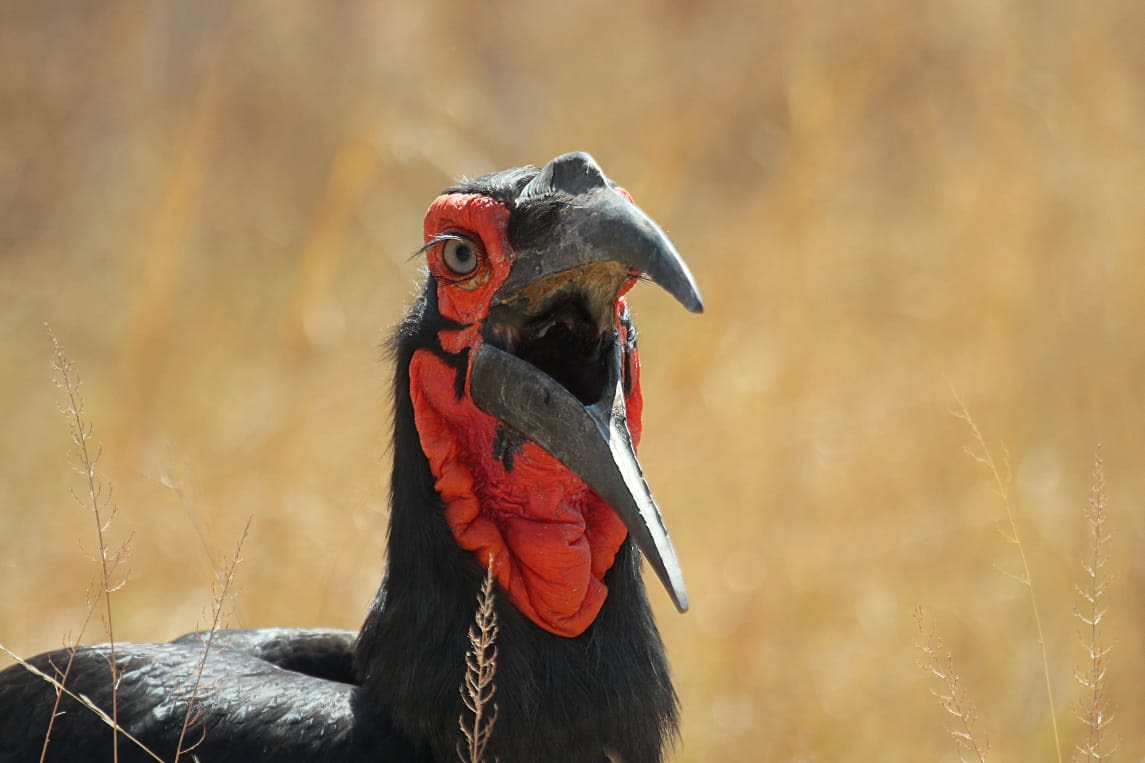
We are celebrating our 20th birthday with a day of celebrating the science of ground-hornbills - what a long way we have all come on this journey of understanding.
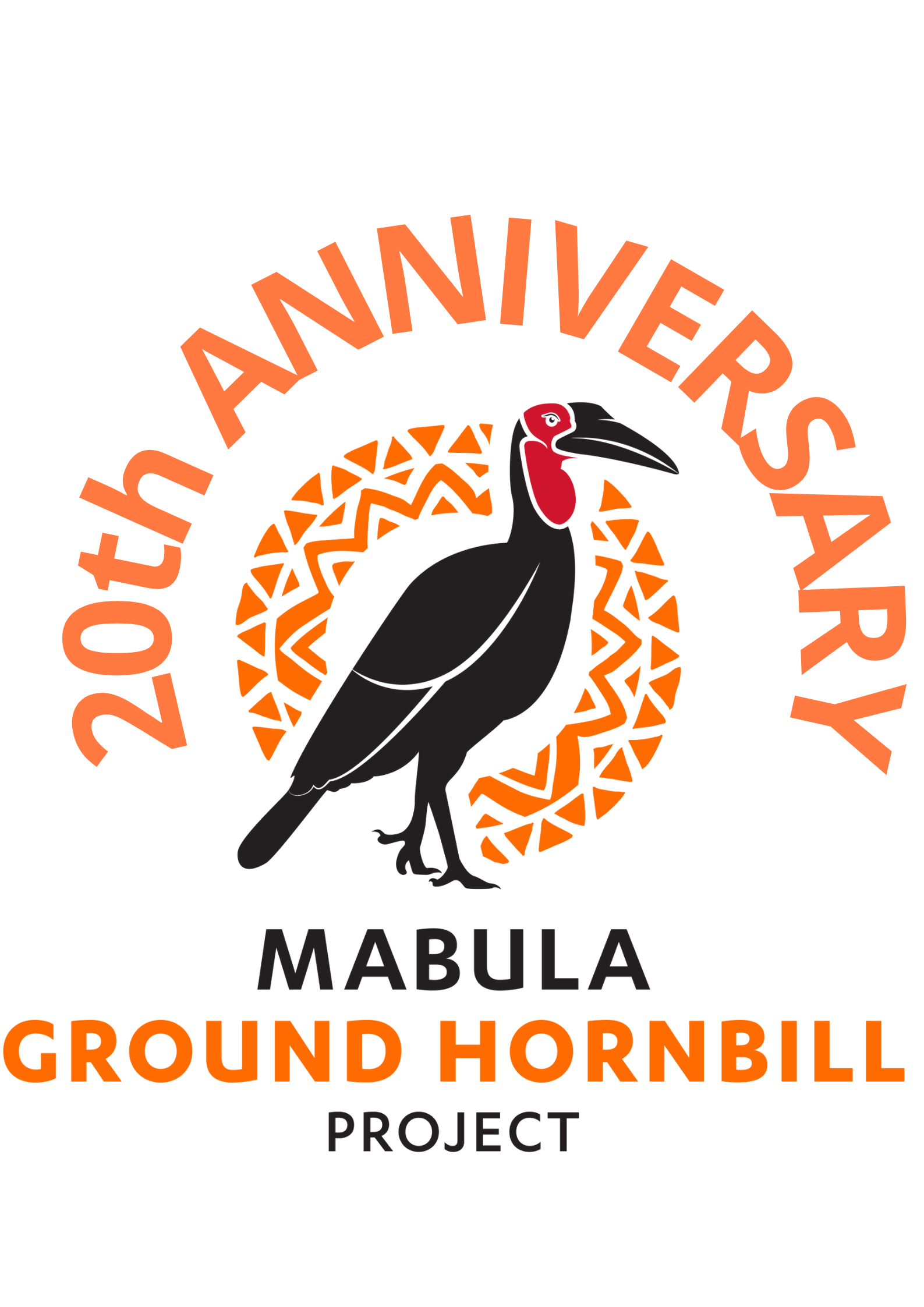

Training Team Zimbabwe
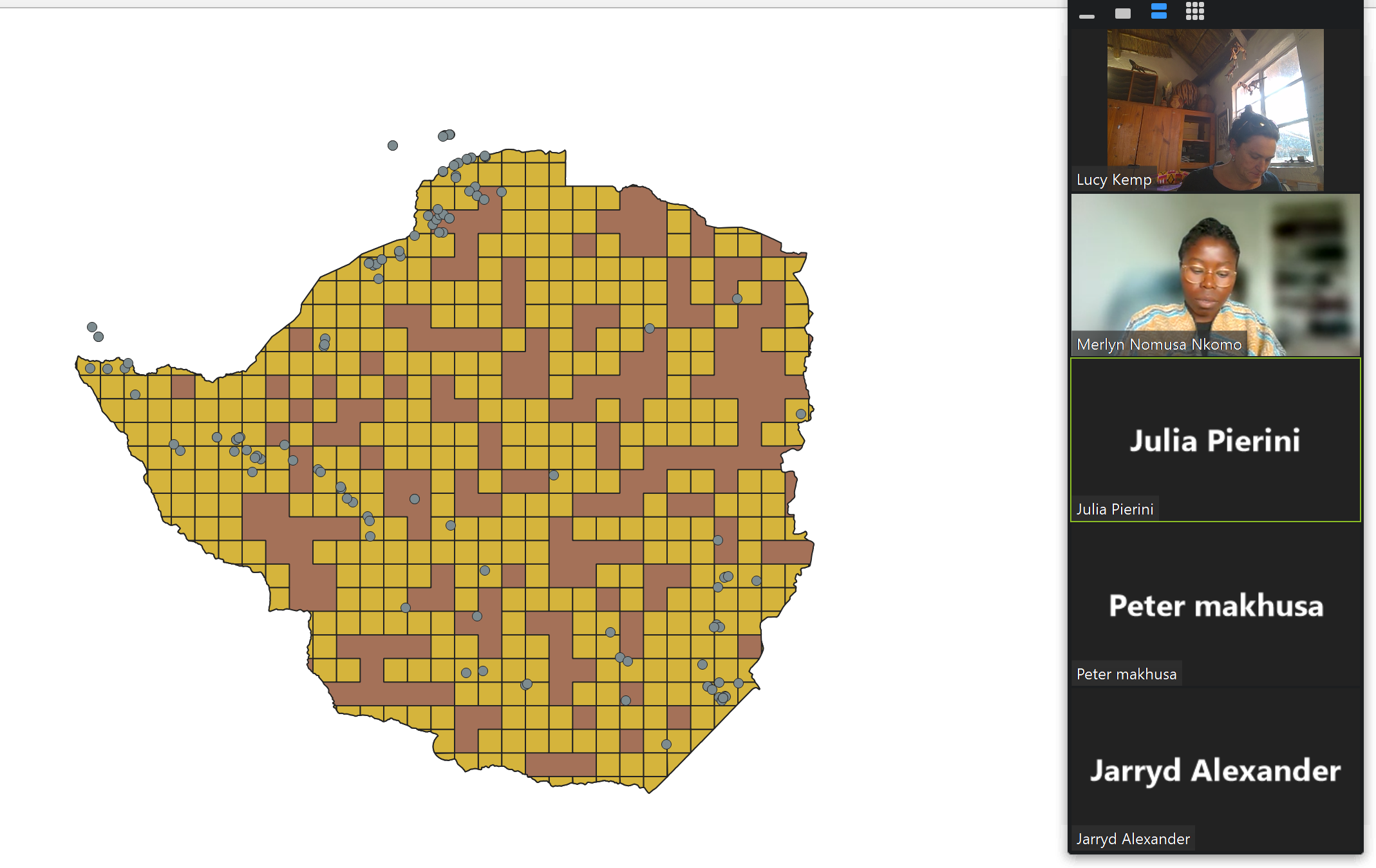
Starting to address each of the Objectives in the Conservation Plan for SGH in Zimbabwe with the team led by BidLife Zimbabwe.
Starting to address each of the Objectives in the Conservation Plan for SGH in Zimbabwe with the team led by BidLife Zimbabwe.
With this team determined to establish the conservation status of their ground-hornbills there are now seven WhatsApp Champion groups, with the sightings starting to flood in, and we hope to add more groups as the weeks and months progress. What started as a theoretical plan for monitoring a low-density widespread species across South Africa has become a reality and it is working like a charm. In South Africa, we got over 700 sighting records in August alone. And now we have Namibia and Zimbabwe picking up steam, and a few other range states starting to initiate their own national reporting networks. This will provide a wealth of data on density across the range, persistence outside of protected areas and a network of citizen scientists who love their ground-hornbills.
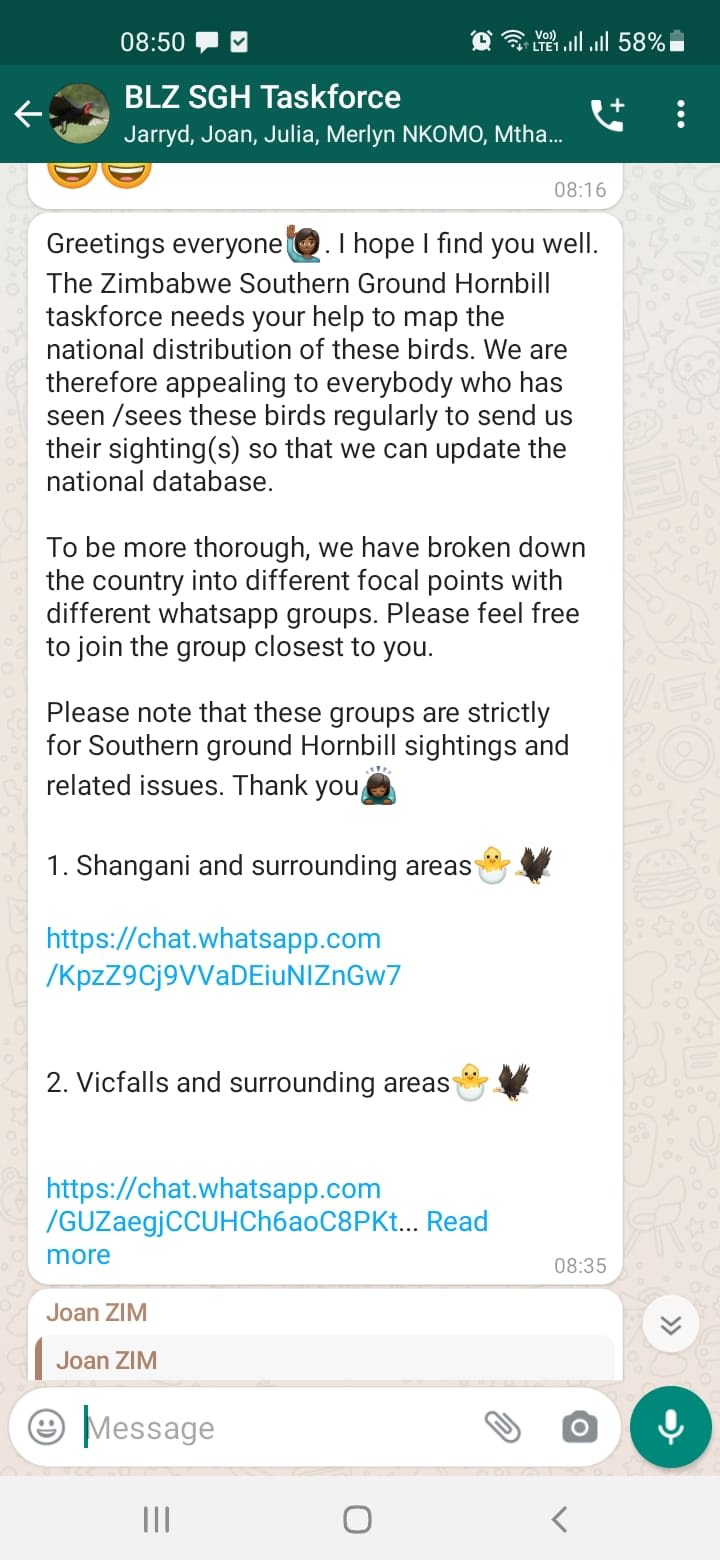
Even ground-hornbills must be vaccinated
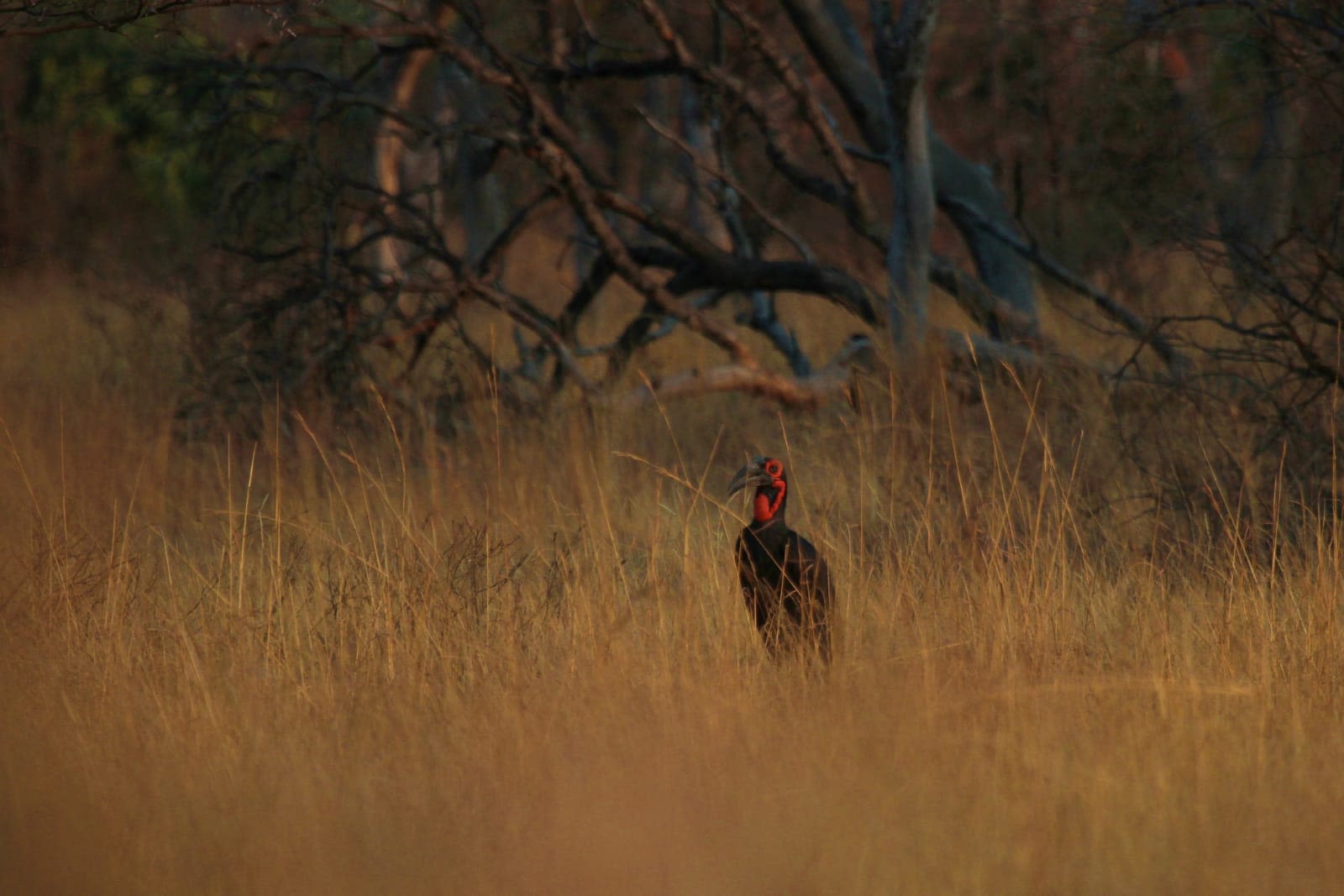
We're excited that the COVID-19 vaccine is finally widely available! As our team members get their jabs, the ground-hornbills are getting vaccinated too, but no jabs for them - lucky things. Avian avulavirus 1, which leads to Newcastle's Virus Disease, remains a threat to Southern Ground-hornbill populations. Captive and reintroduced birds alike have had their vaccines administered safely for the year, given through food so no stressful captures or injections are necessary.
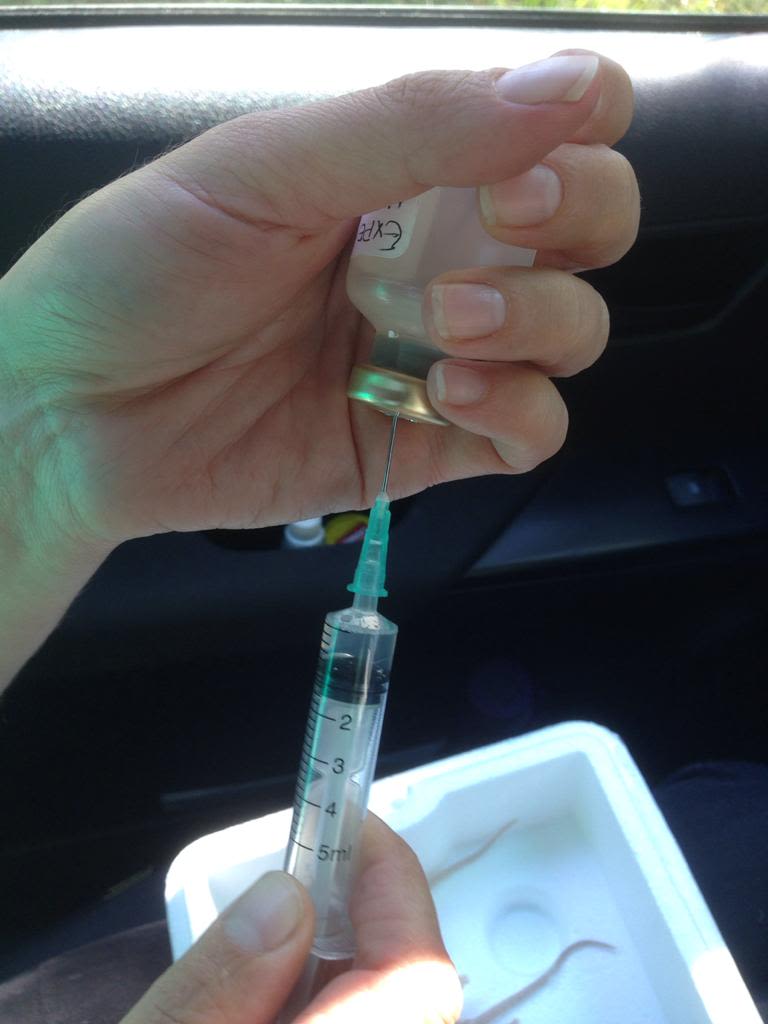
Natasha Nel preparing the vaccine for dosing using the supplementary feed.
Natasha Nel preparing the vaccine for dosing using the supplementary feed.
Finishing the finishings: the Baobab is ready for the 2021 season - in the nick of time as egg 1 has already been laid
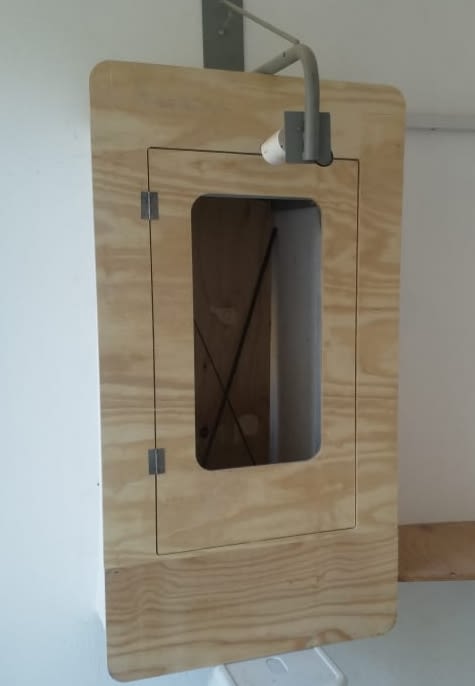
These are the very smart frontages to the artificial rearing chambers/ nests so humans on the inside and foster ground-hornbills on the outside - a team that builds the best reintroduction candidates possible.
These are the very smart frontages to the artificial rearing chambers/ nests so humans on the inside and foster ground-hornbills on the outside - a team that builds the best reintroduction candidates possible.
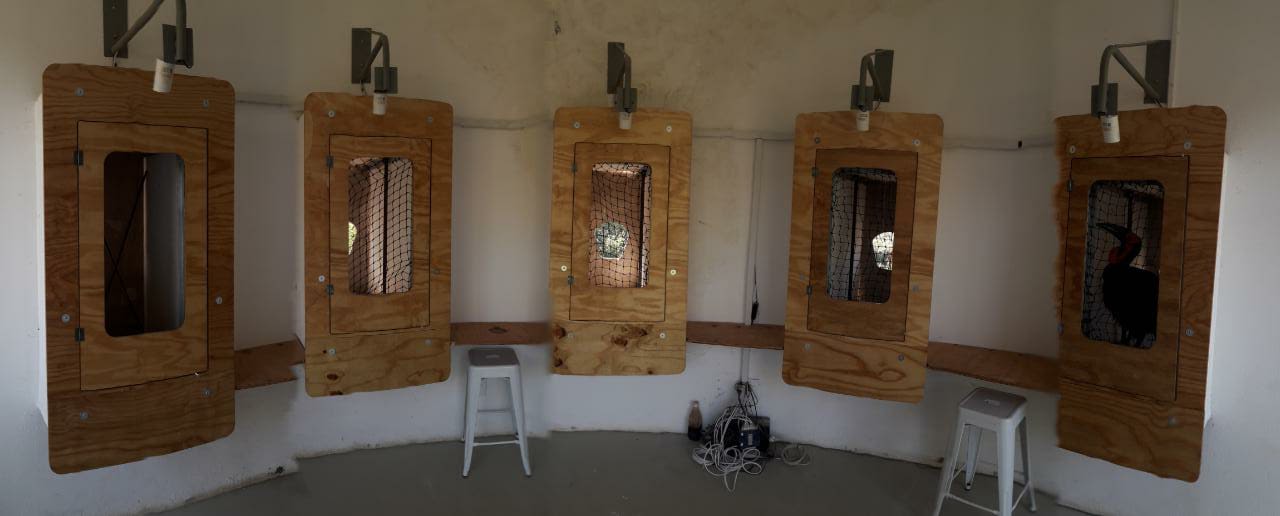
Dr John Kani & Dr Gcina Mphlophe
lend us their voices
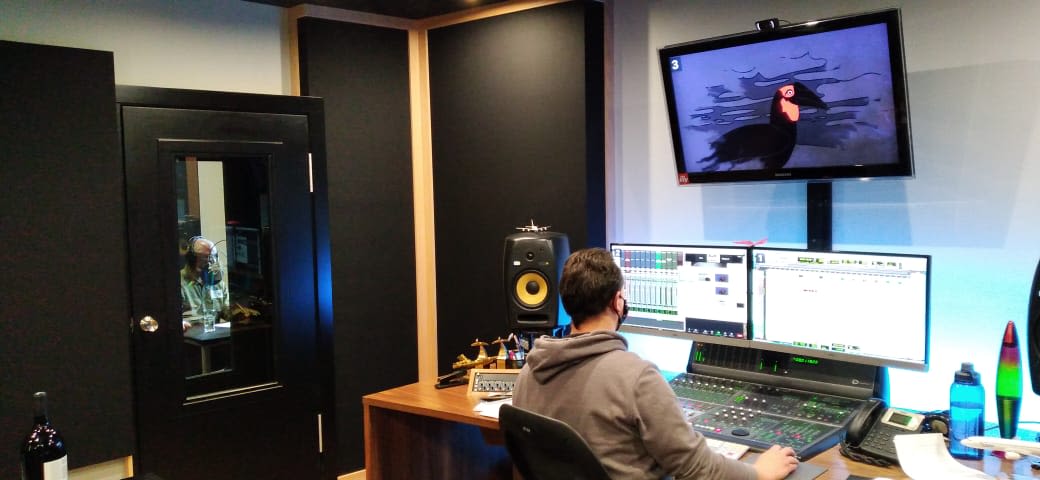
Both Dr John Kani (for English and isisXhosa) and Dr Gcina Mhlophe (isiZulu) have done incredible voice-overs for our conservation animation. With support from Tincup Animation, Triggerfish Animation, Sonic Studios (Durban) and Sonovision (Gauteng). Can't wait to see the final product.
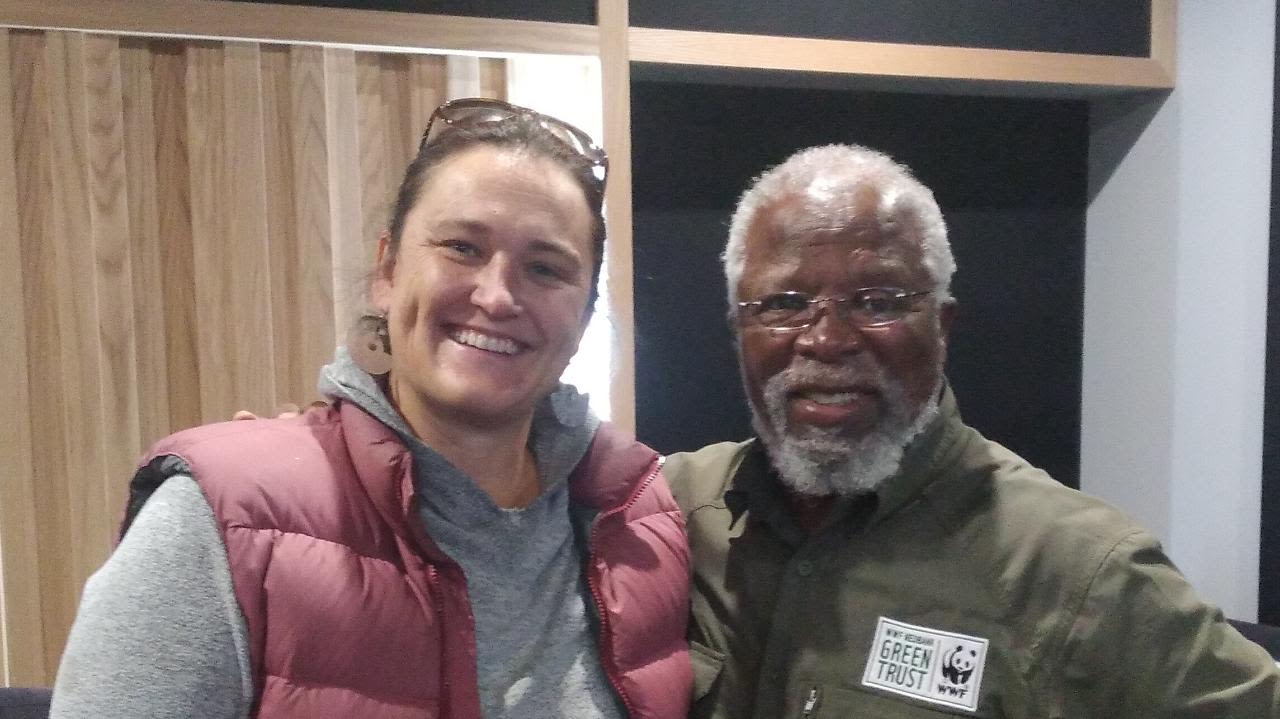
A very smug-looking Lucy got to hang with Dr Kani for a morning at the recording studio. It was an incredible experience.
A very smug-looking Lucy got to hang with Dr Kani for a morning at the recording studio. It was an incredible experience.
We would like to continue to send you our news and updates on matters regarding conservation, wildlife management and research, but we respect your privacy. So now is the time to indicate if you wish to be removed from our mailing lists by simply responding to this email with “unsubscribe” in the subject line. Thereafter we will remove you from our mailing list and you will no longer receive any further correspondence from us.
To remain on our mailing lists you don’t need to respond.
We respect your privacy - should you wish to no longer receive these emails, please click the "unsubscribe" link below. Thereafter you will no longer receive any correspondence from us.
We would also like to take this opportunity to assure you that your personal information (email and name) is controlled and securely stored. If you wish to continue receiving our updates, you needn't click anything. We also would like to assure you that we will not share your information with third parties without your consent or use your details irresponsibly.

